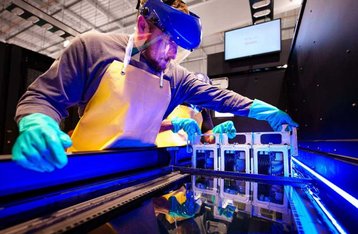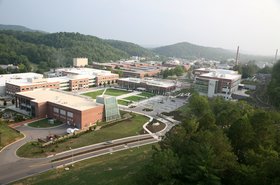The US government's Sandia National Laboratories' High Performance Computing (HPC) center is testing immersion cooling for its machines.
Located in Albuquerque, New Mexico, Sandia announced on May 30 that it was testing immersion cooling at its HPC center and estimates that it will reduce energy consumption by as much as 70 percent.
Dave Martinez, engineering program project lead for Sandia’s Infrastructure Computing Services, said that the center has opted for total immersion. “We place whole computers - their power cables, everything - in a liquefied solution. We take an entire rack and drop it into fluid contained in big immersion tanks.”
The coolant is, of course, not conductive and has the approximate viscosity of cooking oil. Martinez notes that, unlike water-chilled systems, there is no evaporation so there is no water lost.
The HPC center is using Submer Technologies' immersion system throughout the summer for testing.
Submer's single-phase immersion cooling system uses a biodegradable, nontoxic, nonflammable, and noncorrosive liquid. It claims to be 95 percent more efficient than traditional cooling technologies, while 1,400 times a better thermal conductor than air and eight times less electrically conductive.
The computing power will be used for a new task by Hoonify Technologies which is composed of five former Sandia researchers.
Martinez adds that the warmer temperature of the liquid could also be used to provide heat to adjacent buildings during winter months.
Sandia National Laboratories is a "multimission laboratory" that was established in 1949. The lab focuses on national security, nuclear weapons, and energy research. The site is currently home to three supercomputers: Trinity, Astra, and Attaway. It also houses Intel's 20 petaops (not to be confused with petaflops) neuromorphic system, Hala Point.
In January 2024, Sonic Edge and Submer deployed an immersion cooling data center module at Castrol's UK research site. The company's cooling solution was put through rigorous testing by Telefonica in 2023.







